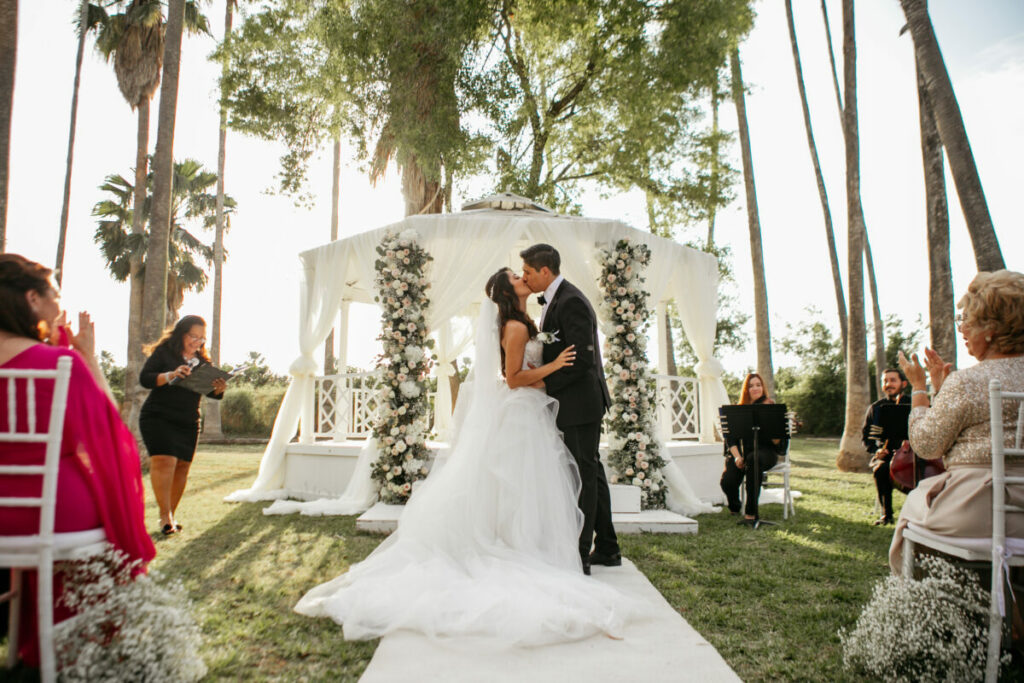The ceremony IS your wedding. For some couples, a family priest or church is the basis of the planning process. For others, the ceremony may be built around a beloved location, a favorite piece of music, or your own love story.
Find someone to officiate whom you both love and admire.
Whether it’s your church pastor or a dear family friend. What’s most important is that you share a mutual respect for the person who leads you through your vows. If he or she can get to know you as a couple (through meetings or premarital counseling), that familiarity will foster a more personalized ceremony.
Let both your families (and faiths) have a part.
From the beginning, listen to both sides’ expectations for your wedding day. It’s the bridal couple’s special day, but discussing choices with both families will encourage everyone to
feel included.
Plan ahead from the start.
Though it’s not the most romantic detail, look into marriage license requirements in your area right away. Check the county clerk’s website for guidelines, and set an appointment with your fiancé to pick up your license within two weeks of your wedding. You’ll need to bring the license to the ceremony and have the officiant sign it, then mail it back to the county clerk within 30 days. (Refer to p.165 for more legal details.)
Have a printed program.
Although it’s not required, a handout program is an ideal place to list your wedding party and close family members. You can also thank them and your guests in the program. Having an outdoor wedding? Guests can use programs as fans.
Give guests a hint about your traditions.
f special rituals or activities will be included in your ceremony, explain them to your guests through the printed program. Some guests may not understand what’s going on, so your handout will help them enjoy the experience.
Schedule a rehearsal.
Your officiant will probably suggest this, but do so yourself just in case. All wedding party members will feel more comfortable during the ceremony if they have had some practice. The officiant should be well-versed in showing everyone where to stand, when to walk, and when to sit.
Do invite your officiant and his/her significant other.
Treat your officiant and his or her spouse like guests by sending an invitation. Plan to seat them at your parents’ table or with another family member, especially if the person has known your family for a long time. Some officiants decline their invitation, but they will appreciate good manners, anyway.
Honor VIPs.
The wedding ceremony offers a lovely time to give special honor or recognition to family members or beloved guests. Both mothers might be invited to light a unity candle; close friends might be asked to give short readings; a favorite relative might be appointed to witness or be given honored seating
Determine seating beforehand.
In Christian ceremonies, the bride’s side is the left and the groom’s is the right, but the opposite is true for Jewish ceremonies. It’s your day, though, so you can either follow this tradition or simply have family fill in from the front with all others seated behind them as they arrive.
Give ushers a helping hand.
Your ushers need to know where family members and special guests are supposed to sit. Do them (and yourselves) a favor by printing out a list of names to recognize with directions for seating. They can stow it in a pocket and refer to it as a cheat sheet when needed.


